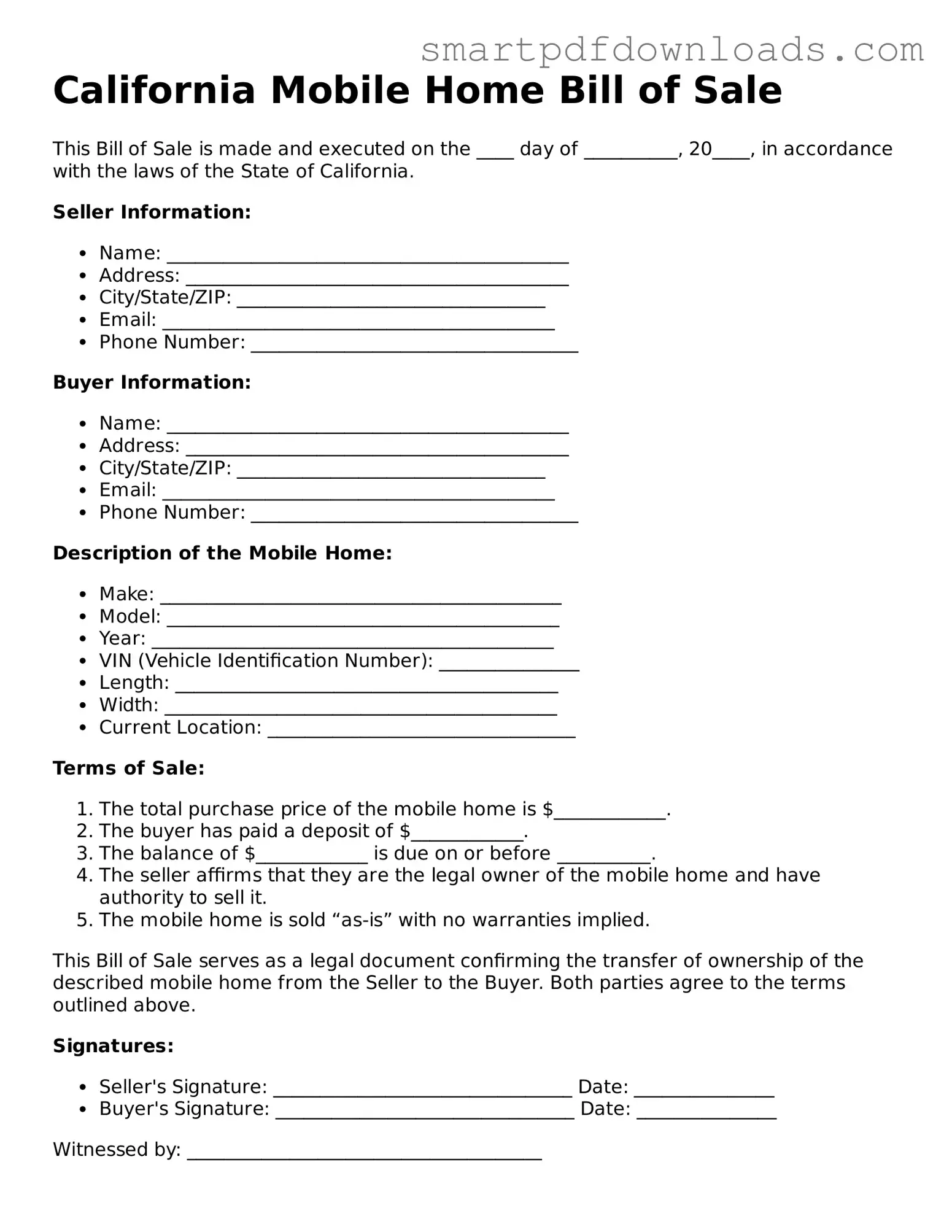Legal Mobile Home Bill of Sale Form for the State of California
The California Mobile Home Bill of Sale form is a legal document used to transfer ownership of a mobile home from one party to another. This form outlines essential details about the mobile home, including its identification and the terms of the sale. Understanding this document is crucial for both buyers and sellers to ensure a smooth transaction and proper registration.
Edit Mobile Home Bill of Sale Online

Legal Mobile Home Bill of Sale Form for the State of California
Edit Mobile Home Bill of Sale Online

Edit Mobile Home Bill of Sale Online
or
⇓ PDF File
Finish the form and move on
Edit Mobile Home Bill of Sale online fast, without printing.